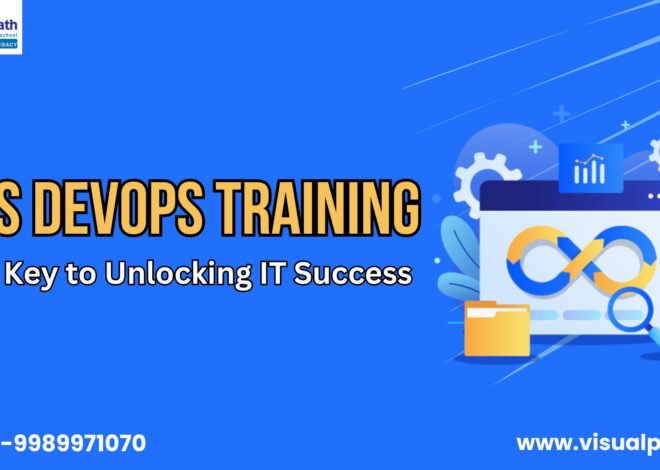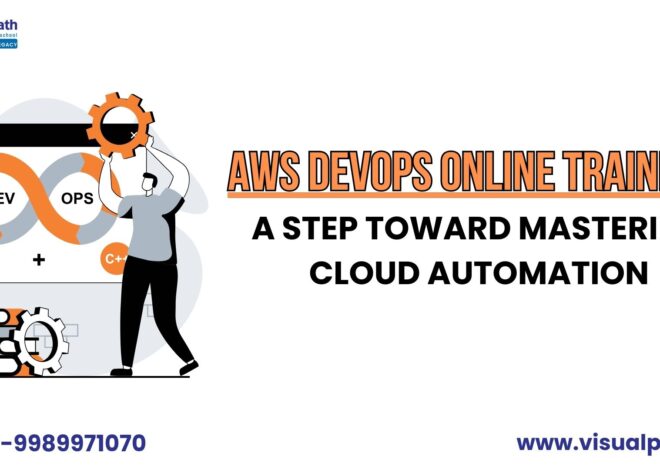
DevOps Security: Integrating DevSecOps for a Secure Development Lifecycle
DevOps has revolutionized software development, enabling faster and more efficient delivery of high-quality applications. However, with increased speed comes the need for enhanced security measures. Integrating DevSecOps into the development lifecycle ensures that security is woven into every stage of the process, protecting against vulnerabilities and maintaining robust security standards.
The Need for DevSecOps
Traditional security approaches often treat security as a separate, final step in the development process. This method can lead to delays, increased costs, and the potential for vulnerabilities to go undetected until the end stages of development. DevSecOps addresses these challenges by embedding security throughout the entire development lifecycle, from initial design through to deployment and beyond.
By incorporating security early and continuously, organizations can:
- Identify and Mitigate Risks Early: Detect and address security issues before they become significant problems.
- Accelerate Development: Reduce the time spent on rework and fixes by integrating security into the development process. DevOps Training
- Improve Compliance: Ensure that applications meet regulatory and compliance requirements from the outset.
Key Principles of DevSecOps
- Shift Left: Integrate security practices early in the development process. The earlier security is considered, the easier and less expensive it is to address vulnerabilities.
- Automation: Use automated tools and processes to enforce security policies, conduct vulnerability assessments, and perform continuous monitoring.
- Collaboration: Foster collaboration between development, operations, and security teams to ensure that security is a shared responsibility.
- Continuous Improvement: Regularly review and update security practices and tools to adapt to emerging threats and vulnerabilities.
- Security as Code: Treat security policies and configurations as code, ensuring they are version-controlled and easily auditable.
Implementing DevSecOps
- Culture and Mindset:
- Foster a Security-first Culture: Encourage all team members to prioritize security and understand their role in maintaining it.
- Training and Education: Provide ongoing training for developers, operations, and security teams on secure coding practices and the latest security threats. DevOps Training Online
- Secure Development Practices:
- Threat Modeling: Identify potential threats and vulnerabilities early in the design phase.
- Secure Coding Standards: Establish and enforce coding standards that promote security.
- Code Reviews: Implement regular code reviews with a focus on security.
- Automated Security Testing:
- Static Application Security Testing (SAST): Analyze source code for vulnerabilities without executing the code.
- Dynamic Application Security Testing (DAST): Test running applications to identify vulnerabilities that could be exploited in a production environment. AWS DevOps Training
- Interactive Application Security Testing (IAST): Combine SAST and DAST to provide a comprehensive security analysis during runtime.
- Continuous Integration and Continuous Deployment (CI/CD):
- Security in CI/CD Pipelines: Integrate security checks into CI/CD pipelines to automate security testing at every stage of the development lifecycle.
- Automated Deployments: Use automated deployment tools to ensure consistent and secure configurations across environments.
- Infrastructure as Code (IaC):
- Secure Configurations: Define and enforce security configurations in code, ensuring that infrastructure is provisioned securely and consistently.
- Policy as Code: Use tools like Open Policy Agent (OPA) to enforce security policies in IaC deployments.
- Monitoring and Incident Response:
- Continuous Monitoring: Implement monitoring tools to detect and respond to security incidents in real-time.
- Incident Response Plan: Develop and regularly update an incident response plan to quickly address and mitigate security breaches.
Case Study: Implementing DevSecOps in a Financial Services Company
A financial services company faced increasing regulatory requirements and the need to secure sensitive customer data while maintaining a rapid development pace. By adopting DevSecOps, they transformed their development process to prioritize security.
- Automated Security Testing: They integrated SAST and DAST tools into their CI/CD pipeline, ensuring that every code change was automatically scanned for vulnerabilities.
- Infrastructure as Code: Using IaC tools, they defined secure configurations for their cloud infrastructure, reducing the risk of misconfigurations.
- Continuous Monitoring: They deployed real-time monitoring solutions to detect and respond to security incidents swiftly. DevOps Online Training
As a result, the company achieved a significant reduction in security vulnerabilities, improved compliance with regulatory standards, and maintained a high development velocity.
Tools for DevSecOps
- Static Analysis: Tools like SonarQube, Checkmarx, and Fortify.
- Dynamic Analysis: Tools like OWASP ZAP, Burp Suite, and Acunetix.
- Container Security: Tools like Aqua Security, Twistlock, and Clair.
- Infrastructure as Code: Tools like Terraform, AWS CloudFormation, and Azure Resource Manager with security-focused plugins.
- Policy as Code: Tools like Open Policy Agent (OPA) and HashiCorp Sentinel.
Conclusion
Integrating DevSecOps into your development lifecycle is essential for delivering secure, high-quality software at speed. By shifting security left, automating security practices, fostering collaboration, and continuously improving, organizations can build a robust security posture. DevSecOps is not just a set of tools or processes but a cultural shift that requires commitment from all stakeholders. Embrace DevSecOps to stay ahead of security threats and deliver secure applications that meet the needs of your users and comply with regulatory requirements. AWS DevOps Online Training
Visualpath is the Leading and Best Software Online Training Institute in Hyderabad. Avail complete DevOps Training Worldwide. You will get the best course at an affordable cost.
Attend Free Demo
Call on – +91-9989971070



